I am using WCF for data services only (ie internal to the application and very lean with no session state etc) to keep our web application scalable.
We need to provide some common properties for every service call that we are currently passing in all the time. Having single request objects for every call is not ideal as beyond these common properties, the rest are very varied and change quite frequently during development.
At the moment I'm considering using custom headers and the clientmessageinspector to do to set the values. Is this the simplest recommended approach for this scenario or is there a better approach?
More detail..
The red points below are where I'm unsure the right approach (or how to go about it).

What's being sent
The data being sent is simple set of ids (3 or 4 for userid, clientid etc) - all these ids have an impact on security and on performance (in some cases it determines what database to go to).
We will also be extending this to have more complex permissions - not needed for the windows workers.
The caller will be either a web application where these come off a session object, or a windows service worker where these are manually populated.
The Current Thinking
Ideally, getinstance on the caller's workflow would either populate these properties automatically with the session object or more manually with the windows service calls (different constructors?).
We would then ensure that these parameters are always available without any thought or without constant references throughout the code to construct the contract on each function that calls it. We currently have a lot of service calls (due to scale/complexity of app, not due to bad engineering :)), so as this extends for complex permissions it is becoming a bit difficult to enforce rules in a self-documenting way.
Conceptually, session is where you'd take care of this in the app, but the services are really just a data access layer (with view mapping, pageing and last call security from repository calls) so we don't need that sort of repitition or complexity, just the key identitiy & permission fields to include in queries.
The Problem
This feels very much like something we should be doing with headers on the calls as we always need these fields, but I'm a little unsure of where the set and get should sit in the lifecycle of the endpoint and the client interface. I'm also happy to be wrong about that.